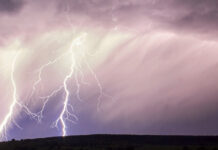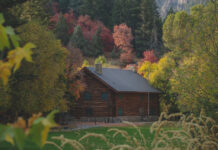As people in Texas and elsewhere in the nation lose their electricity because it is so cold that their electrical generation company cannot make it fast enough, I have two thoughts:
- I am glad we have a wood stove and three cords of wood on hand.
- If you think this is bad, just wait. As we shift to green energy, rotating blackouts will become increasingly common as things like solar power and wind power are incapable of producing enough electricity on a consistent basis and cannot meet peak demand.
You can blame the cold weather on “climate change” or “global warming” if you want. More likely it has to do with sunspot activity. The of the cause doesn’t really matter. Being unprepared to meet the demands is a failure on the part of the highly regulated utilities. That failure, in turn, is at least partially the fault of the regulators and law-makers who dictate how private companies should run their business, govern their emissions, and mandate that they meet certain standards. Laws passed to disincentivize coal burning power plants are responsible for the millions of people experiencing rolling blackouts on the coldest day of the year.
Small Failures Cause Fragile Systems to Collapse
A few days ago, we covered the problem with complex systems and how small failures can have a large impact as they cause repercussions further down the line. The current cold snap is an excellent example of this and has caused the following problems:
- Heating demand has sent the spot price of natural gas from less than $3 per million BTUs to $500 in some locations.
- Spot prices for electricity reached $9,000 per megawatt. To put this in perspective, my utility charges me 12 center per kilowatt, which translates into $120 per megawatt. Somebody is sure making money, but someone else is losing it.
- Electrical generation cannot keep up with demand. It started in Texas, but grid operators have started rotating blackouts across other Midwestern states, including Kansas, Missouri, and Arkansas.
- The high demand for natural gas in Texas caused electoral outages in Mexico as their plants ran out of fuel.
- Wind turbines have stopped working due to ice buildup, cutting generation in half.
- Power outages are affecting oil and gas productions in Texas and Oklahoma, just when it is needed most. More than 1.5 million a million barrels of oil and 10 billion cubic feet of natural gas production was knocked off line due to the weather.
- The cold also affects chemical and polymer plants along the coast. Many of these manufacturing facilities are not designed to handle sub-freezing temperatures because it is rarely that cold along the Taxes and Louisiana coast. As a result, companies have to cease production and act to winterfy their plants when cold weather threatens.
- Firewood and propane canisters are reportedly selling out across much of the Midwest.
What we don’t Know Yet
We have yet to take into account the number of frozen pipes and damage to residential systems caused by these ultra-low temperatures in what is usually very temperate location. They do not bury pipes deep enough for single digit temperatures and houses, plumbing, and heating systems in warm locations are just not designed to withstand these temperatures. If building codes are not designed to include snow loads, homeowners could see damage to their roof and gutters.
We also don’t know how many cows or other livestock have been killed. Ranchers in places like Colorado are used to raising cows in cold, snowy conditions, but that may not be the case in Texas. Water systems there may not have heaters. Cows may not be able to access grass under heavy snow. Trucks bringing large hay bales may not be able to make it to the fields.
We also don’t know what the human death toll is, and it probably building.
How You Can Prepare
When we worry about power outages, our chief concern is keeping the refrigerator and freezer cold. Not something we need to worry about this time of year. Should we lose power, we can put frozen food on the deck and refrigerated food in the garage. In the winter, it is far more important to have a heat source.
Priority one is medical equipment and other electrical devices that keep you alive. Rechargeable battery packs are the way to go. Do some research on so-called “solar generators” and find one with enough stored power to run any critical devices required by your household for a few days.
Priority Two is heat. Not only can the cold kill you, it can damage the systems of your house. We use and recommend wood stoves. Kerosene stove or propane heaters are alternatives, but they depend on a fuel source that can run out. But I keep a minimum of one cord of firewood on hand at all times. That’s three weeks of heat. Whatever you do, do not burn your propane grill indoors and do not use a charcoal grill in the house.
If you have a generator, you should consider getting it large enough to power some major 240 volt systems in your house, such as your HVAC and well pump (if you have one). It’s best to have a professional install a transfer switch for you. You might be hard pressed to generate sufficient power to run an all-electric heating system, but if you burn propane, then all you need is sufficient power to run the blower.
Warm clothes and bedding are also a must, and it is surprising how many people in the deep south don’t have them. They put on a hoody and a windbreaker instead of a winter coat, because that is all they own. And who can blame them? When the temps dip below freezing once or twice a year, who needs a parka? But dressing appropriately and having heavy bedding can really protect you, both inside and out.
You also need a way to boil water or heat food, such as a Coleman stove. A bowl of hot soup, a cup of coffee, tea or hot chocolate can be good for your attitude as well as help warm you from the inside.
Learn how to recognize the signs of hypothermia, such as shivering, confusion and slurred speech, and pay special attention to young children and the elderly. Make sure they stay warm and don’t become a victim.
Lighting is another issue. We’ve written about flashlights and other battery-powered devices before. These should be mandatory if you face the possibility of a power outage.
Finally, if there is a chance that your pipes will freeze in a lengthy power outage, learn how to turn off your water and drain the water from your pipes. Keep in mind hoses in your refrigerator’s ice maker/water dispenser, dishwasher, and washing machine as these can also freeze.
Prepare for the Worst
It’s OK to get caught by surprise when the weather takes an unexpected turn, but it is not OK to get caught unprepared. Preppers need to be prepared for whatever Mother Nature throws at them.
When you prepare for the worst and hope for the best, you are ready for whatever happens.








